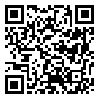BibTeX | RIS | EndNote | Medlars | ProCite | Reference Manager | RefWorks
Send citation to:
URL: http://ijer.hormozgan.ac.ir/article-1-448-en.html
2- Assistant Professor, Department of Educational Sciences, Isf.C., Islamic Azad University, Isfahan, Iran ,
3- Associate Professor, Department of Educational Sciences, Isf.C., Islamic Azad University, Isfahan, Iran
Objective: This study aimed to investigate the effectiveness of a spiritual intelligence curriculum based on brain-centered interactive-emotional strategies on social isolation among parents of children with intellectual disabilities in Isfahan.
Methods: The research employed a quasi-experimental design with pre-test and post-test and a control group. The statistical population included all parents of children with intellectual disabilities in the six districts of the Exceptional Education Organization in Isfahan, totaling 2,411 individuals. Using convenience sampling, 60 parents were selected and assigned to experimental and control groups. Data were collected using the Yazdi (2014) Social Isolation Questionnaire. Descriptive statistics included frequency distribution tables, charts, and calculation of descriptive indices. Inferential statistics involved analysis of covariance (ANCOVA). The Kolmogorov-Smirnov test was used to examine data normality, Levene’s test to assess variance equality, and regression homogeneity was checked via the slope homogeneity test. All statistical analyses were performed using SPSS version 24.
Results: The results indicated that the spiritual intelligence curriculum content, designed based on brain-centered interactive-emotional strategies, had a significant effect on social isolation among parents of children with intellectual disabilities (F = 10.230, p < 0.05).
Conclusions: The findings suggest that implementing a curriculum designed to enhance spiritual intelligence through brain-centered interactive-emotional strategies can effectively reduce social isolation in parents of children with intellectual disabilities.
Received: 2025/06/22 | Accepted: 2025/07/25 | Published: 2025/12/19
| Rights and permissions | |
 |
This work is licensed under the Creative Commons - Attribution 4.0 International. |






